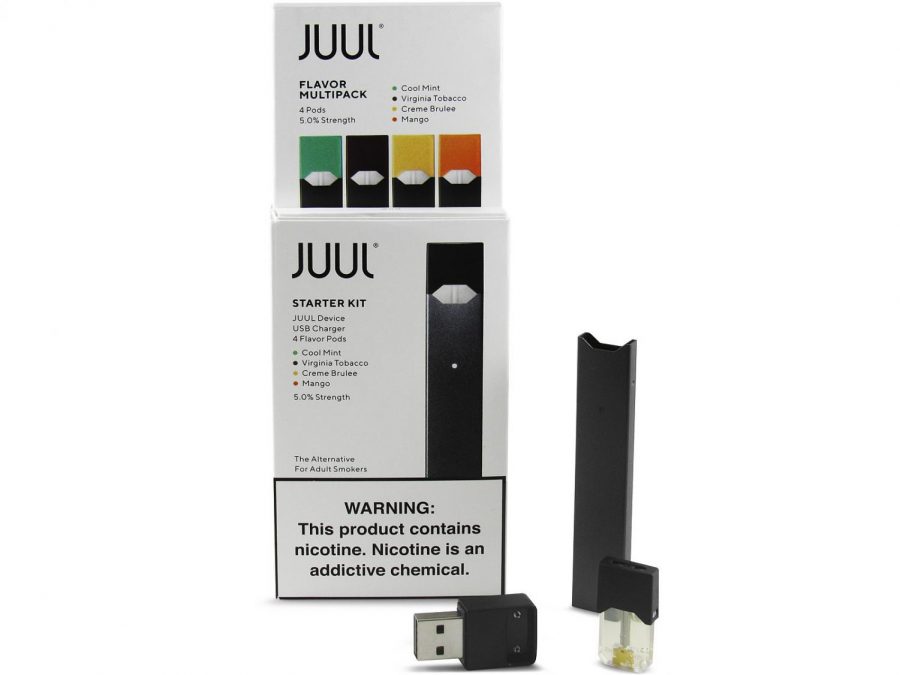FDA cracks down on JUUL Labs
How new regulations stand to impact booming industry
Photo Vapor Vanity
To millenials and members of Generation Z, Juul is comparable to what cigarettes were to baby boomers: an emblem of teenage popularity and parties, a subtle act of rebellion and a gateway to addiction.
And while its use in high school bathrooms has become ubiquitous across the nation, there is another side to the sleek e-cigarette industry that teenagers don’t often think of when taking a hit: JUUL Lab’s 16 billion dollar market value.
Recent regulations by the FDA aiming to curb Juul use among minors have suddenly put the eleven-digit figure at stake. In early November, FDA Commissioner Scott Gottlieb announced a ban on the sale of flavored pods to more than 90,000 retail stores, along with additional age-verification measures for online sales.
Most immediately, the new regulations stand to affect the success of local businesses and convenience stores.
“Everyone is buying only those flavors,” a local 7-Eleven manager told the Hi’s Eye in a phone interview, referencing recently banned flavored pods such as mango, fruit, creme and cucumber. “No one buys the flavors that weren’t banned. That’s why those other flavors were banned, because they were going rapidly on the market.”
“It’s going to affect our sales,” a 7-Eleven employee told the Hi’s Eye while pointing to the store’s display of Juul pods. “Right now, out of all our tobacco products, [the Juul] is the [one] most sold.”
The surge of new FDA regulations largely resulted from recent statistics indicating the alarming increments of Juul use among teenagers. Data from a U.S. government investigation found that e-cigarette use among high schoolers increased by 77 percent in 2018, while use by middle schoolers increased by 50 percent.
Elizabeth Crawford, an associate professor of communication and advertising at North Dakota State University and author of Tobacco Goes to College: Cigarette Advertising in Student Media, 1920-1980, sees the new legislation as a necessary crackdown on underage e-cigarette use.
“It’s reasonable to create legislation to prevent underage consumption and to regulate e-cigarette promotion in contexts where there’s a majority population of minors,” Crawford said in an email. “This context could include convenience stores if there’s a large population of underaged consumers that frequent these businesses.”
According to the 7-Eleven manager, the underage use of Juuls validates the FDA regulation: “The high school kids are misusing it, so it’s a good reason to ban it. But [Juul’s are] still going to be used because they didn’t ban it completely.”
Beyond curtailing the sale of flavored pods at retail stores, the FDA also advised JUUL Labs to reduce its social media presence as a means of limiting teenage exposure. In turn, JUUL Labs has shut down its Facebook and Instagram accounts while also reducing its content on other platforms.
Crawford cautions that, while JUUL Labs obliged with the FDA’s orders, the FDA might be overstepping its boundaries with regards to censorship and freedom of expression.
“Given the lack of information available about Juuls, we need to be cautious not to regulate beyond what is absolutely necessary,” Crawford wrote. “More research is certainly needed to understand the health effects of e-cigarette use before we really take action.”
In the end, only time will tell whether the FDA’s efforts to curb Juul use prove effective and if the product’s economic prosperity remains intact. Yet as the situation between the FDA and JUUL Labs continues to develop, all parties involved stand by to await the potential ramifications.
Image Courtesy of: https://www.vaporvanity.com/juul-e-cigarette-review/

